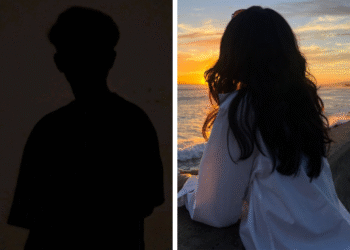In a world that rejects contradictions except when they serve its hegemony, a lesbian woman becomes the target of a double wrath: the wrath of a society that refuses her departure from her “female role,” and the wrath of members of the LGBTQ community who see her calcified masculinity as a betrayal of freedom of identity. This battle is not about one person, but rather about a fundamental question: Who has the right to define “femininity” and “masculinity”? And why do patriarchal systems resist any attempt to transgress these boundaries, even if it comes from within the marginalized community itself?

This YouTuber, who has a short hairstyle and a strong accent, is more than simply a “lesbian embracing masculinity,” but a mirror reflecting a deep-seated dread of the power of women who refuse to be mere “consumable bodies.” The criticism she receives—ranging from accusations of copying to mocking of her claim to “power”—shows how the old gender roles are replicated under different names, and how everyone, including the persecuted, tries to maintain the constraints to which they are accustomed.
comments:
- “When you wear a dress as a gay man: you’re a hero. When you take off your skirt as a gay woman: you’re a freak! This is a dirty game to limit women’s power, even if they choose their freedom outside the framework of men!”
- “The bitter details: the ‘feminine’ man makes everyone laugh, while the ‘masculine’ woman threatens the system. Fear of statues falling!”
- “The bitter details: the ‘feminine’ man makes everyone laugh, while the ‘masculine’ woman threatens the system. Fear of statues falling!”
- “You’re not against Tibu because you defend ‘gay identity,’ but because you want to force us to be ‘nice women’ so we can be sympathized with!”
- “Queer women are constantly required to be ‘pretty, soft, and unobtrusive’… a modified version of comfortable masculinity!”
- “The history of lesbians is full of butch-femmes. Our roles were necessary for survival. Today, you have become guardians of the same taboos!”
- “The paradox: Older generations adopted the roles to protect themselves, and newer generations attack them in the name of ‘liberation’! Where is the logic?”
- “Female masculinity is not an ‘imitation of men,’ but a revolt against the idea that power is theirs alone. Read history before passing judgment!”
- “But what if this ‘revolt’ reproduces the same stereotypes? Are we exchanging one prison for another?”
- “Your attack is because she reminds you that ‘femininity’ is not a measure of value. A woman without makeup, without skirts, without a conciliatory smile = the nightmare of the patriarchy!”
- “A woman who doesn’t ask permission to be visible… that’s the real crime.”
Female Masculinity: Why the Double Standard?
The anger over “tipoo” isn’t just a disagreement over personal style. It’s a rejection of a woman who dares to occupy a space previously reserved for men, without asking permission, and without making physical or behavioral concessions. It’s a fear that women will demonstrate that “femininity” isn’t a genetic trait, but a social cloak that can be removed.
The cruelest irony? When a segment of the gay community becomes the new gender police, perpetuating the idea that liberation means “acceptable femininity,” while female masculinity is measured by the standards of “proper tradition.” Are we witnessing a true rebellion, or simply a new cycle of restrictions?
When will we understand that gender liberation isn’t about being a “better woman” or a “better man,” but about breaking the cage altogether?







